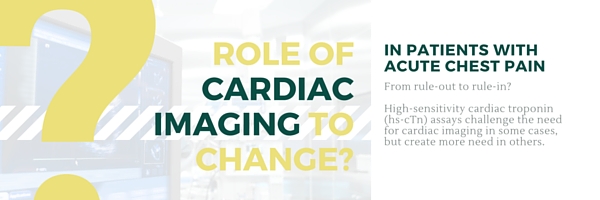In the "high-sensitivity cardiac troponin era," will the role of cardiac imaging in the ED change?
As high-sensitivity cardiac troponin (hs-cTn) assays become more and more common, cardiac imaging becomes less necessary for ruling out acute myocardial infarction (AMI) in ED patients with acute chest pain, but might be useful to prevent unnecessary or aggressive treatments write experts in July's volume of the American Heart Journal.
ACVP blog has covered the groundbreaking research on the high-sensitivity cardiac troponin tests since early last year, when we reported a new strategy that could rule out acute myocardial infarction within one hour, and rule it in with 75 percent accuracy. In June, two studies publishes in JAMA Cardiology lent further support to one-hour algorithms.
The speed and safe, accurate "rule out" of acute myocardial infarction through these cardiac biomarker tests "challenges [the] need" for noninvasive imaging prior to patient discharge when troponin values are normal, write the authors of the American Heart Journal article.
Continue reading A new cardiac imaging paradigm for acute chest pain?



